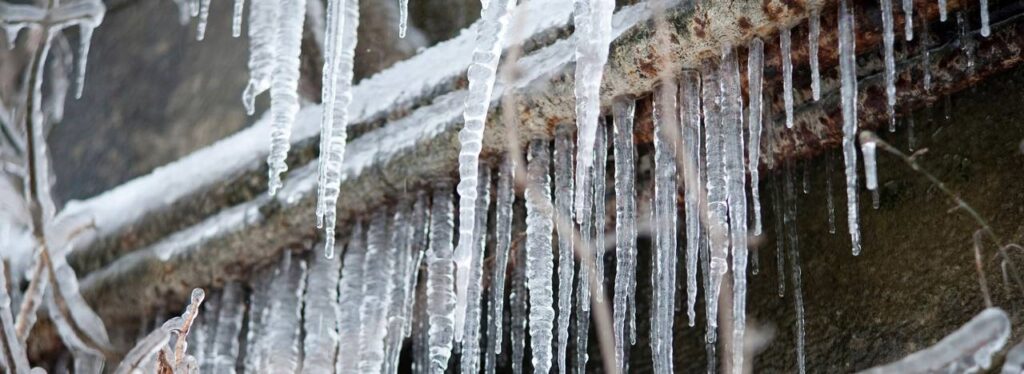The writer is making several great observations on the subject of Prevent Frozen Pipes as a whole in this great article down below.

Cold weather can damage your pipes, especially by freezing pipelines. Below's how to avoid it from occurring and what to do if it does.
Intro
As temperature levels decline, the threat of icy pipelines increases, potentially causing pricey repairs and water damage. Understanding how to prevent icy pipelines is crucial for property owners in chilly environments.
Avoidance Tips
Protecting susceptible pipes
Cover pipelines in insulation sleeves or use heat tape to shield them from freezing temperature levels. Focus on pipelines in unheated or outside areas of the home.
Home heating techniques
Maintain indoor spaces effectively warmed, particularly areas with pipes. Open up cupboard doors to allow warm air to circulate around pipes under sinks.
Just how to identify icy pipelines
Search for lowered water circulation from faucets, unusual smells or sounds from pipes, and visible frost on subjected pipelines.
Long-Term Solutions
Architectural modifications
Think about rerouting pipelines far from outside wall surfaces or unheated areas. Add extra insulation to attics, basements, and crawl spaces.
Upgrading insulation
Purchase high-grade insulation for pipelines, attics, and wall surfaces. Correct insulation assists keep constant temperatures and reduces the danger of frozen pipelines.
Safeguarding Exterior Plumbing
Yard hose pipes and exterior faucets
Separate and drain yard hoses before winter. Set up frost-proof faucets or cover outdoor faucets with shielded caps.
Understanding Frozen Pipelines
What causes pipes to freeze?
Pipelines ice up when exposed to temperatures listed below 32 ° F (0 ° C) for expanded durations. As water inside the pipes freezes, it expands, putting pressure on the pipeline wall surfaces and possibly triggering them to break.
Dangers and problems
Frozen pipelines can cause water disruptions, home damages, and pricey repair services. Burst pipelines can flooding homes and trigger substantial structural damage.
Indicators of Frozen Piping
Recognizing frozen pipes early can stop them from breaking.
What to Do If Your Pipes Freeze
Immediate actions to take
If you believe frozen pipelines, maintain faucets open up to eliminate pressure as the ice thaws. Utilize a hairdryer or towels soaked in warm water to thaw pipes gradually.
Conclusion
Stopping frozen pipelines requires aggressive steps and fast reactions. By recognizing the causes, indications, and safety nets, property owners can secure their pipes during cold weather.
Helpful Tips to Prevent Frozen Pipes this Winter
UNDERSTANDING THE BASICS: WHY PIPES FREEZE AND WHY IT’S A PROBLEM
Water freezing inside pipes is common during the winter months, but understanding why pipes freeze, and the potential problems it can cause is crucial in preventing such incidents. This section will delve into the basics of why pipes freeze and the associated problems that may arise.
THE SCIENCE BEHIND FROZEN PIPES
When water reaches freezing temperatures, it undergoes a physical transformation and solidifies into ice. This expansion of water as it freezes is the primary reason pipes can burst. As the water inside the pipe freezes, it expands, creating immense pressure on the walls. If the pressure becomes too great, the pipe can crack or rupture, leading to leaks and water damage.
FACTORS THAT CONTRIBUTE TO PIPE FREEZING
Low Temperatures: Extremely cold weather, especially below freezing, increases the risk of pipes freezing. Uninsulated or Poorly Insulated Pipes: Pipes located in unheated areas, such as basements, crawl spaces, or attics, are more prone to freezing. Insufficient insulation or lack of insulation altogether exacerbates the problem. Exterior Wall Exposure: Pipes running along exterior walls are susceptible to freezing as they encounter colder temperatures outside. Lack of Heating or Temperature Regulation: Inadequate heating or inconsistent temperature control in your home can contribute to frozen pipes. PROBLEMS CAUSED BY FROZEN PIPES
- Pipe Bursting: As mentioned earlier, the expansion of water as it freezes can cause pipes to burst, resulting in significant water damage.
- Water Damage: When pipes burst, it can lead to flooding and water damage to your property, including walls, ceilings, flooring, and personal belongings.
- Structural Damage: Prolonged exposure to water from burst pipes can compromise the structural integrity of your home, leading to costly repairs.
- Mold and Mildew Growth: Excess moisture from water damage can create a favorable environment for mold and mildew growth, posing health risks to occupants.
- Disrupted Water Supply: Frozen pipes can also result in a complete or partial loss of water supply until the issue is resolved.
WHY CERTAIN PIPES ARE MORE PRONE TO FREEZING
- Location: Pipes located in unheated or poorly insulated areas, such as basements, crawl spaces, attics, or exterior walls, are at higher risk of freezing.
- Exterior Pipes: Outdoor pipes, such as those used for irrigation or exposed plumbing, are particularly vulnerable to freezing as they are directly exposed to the elements.
- Supply Lines: Pipes that carry water from the main water supply into your home, including the main water line, are critical to protect as freezing in these lines can affect your entire plumbing system.
- Underground Pipes: Pipes buried underground, such as those connected to sprinkler systems or outdoor faucets, can be susceptible to freezing if not properly insulated.
https://busybusy.com/blog/helpful-tips-to-prevent-frozen-pipes-this-winter/

We are very fascinated with How to prepare your home plumbing for winter weather and I really hope you enjoyed reading our blog post. I beg you take the opportunity to distribute this page if you appreciated it. I cherish your readership.
Book An Appointment